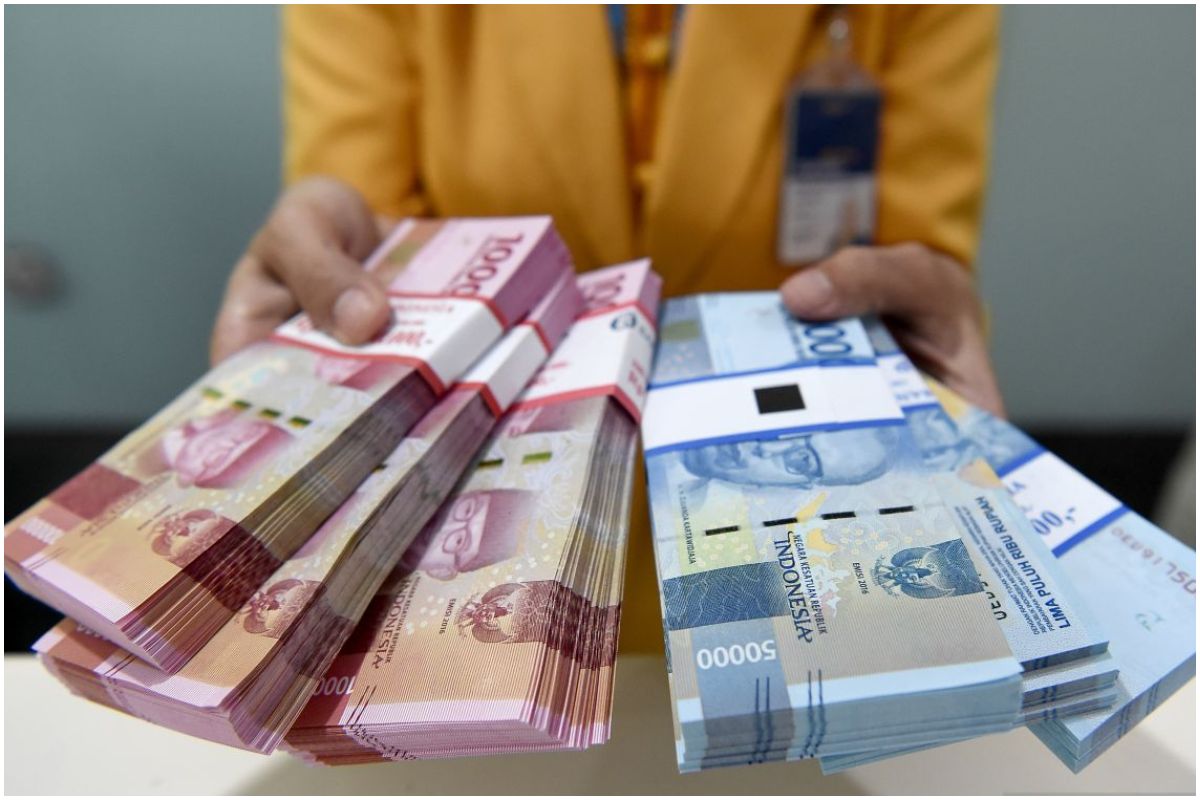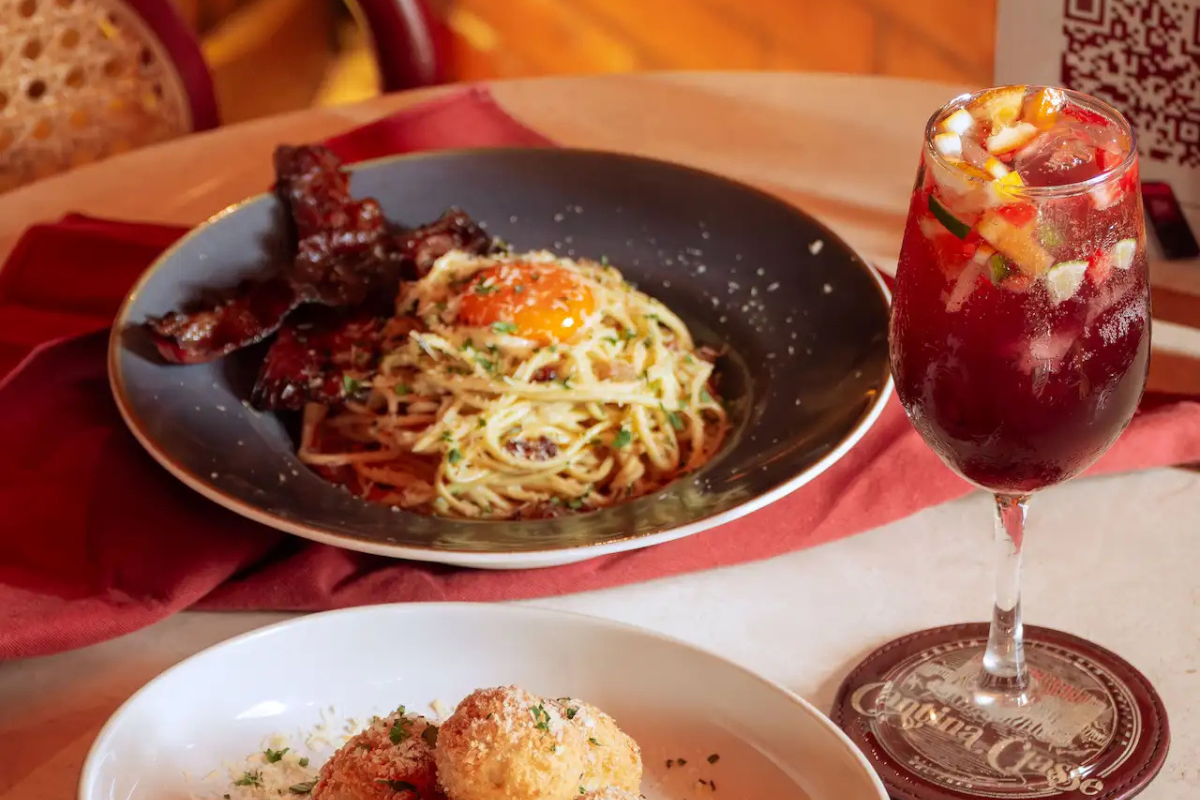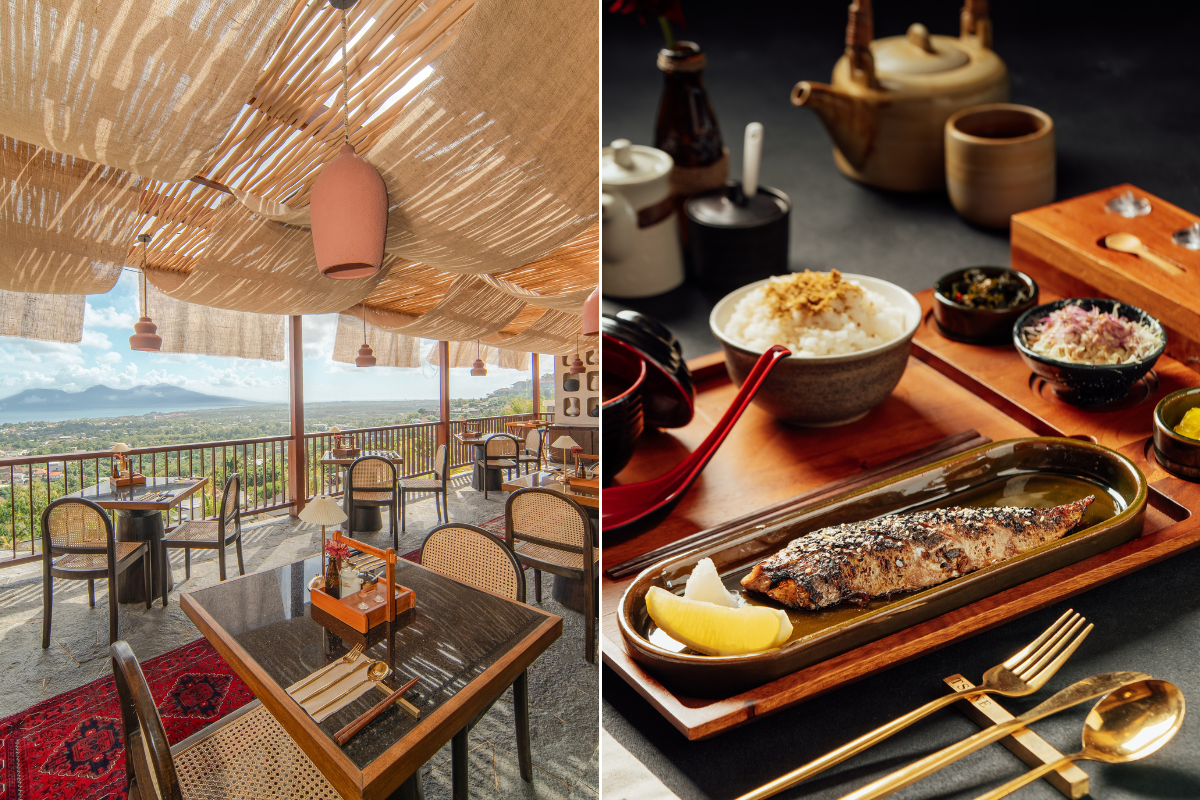If you are wondering what currency Bali uses, then this page is for you. All payments are made in local currency. Most shops, especially in traditional areas, won’t accept foreign cash or international debit cards. Make sure to exchange your money before you arrive or at the airport when you land.

Bali is one of the most popular travel destinations in the world. The island blends surf spots, sacred temples, rice terraces, yoga retreats, and vibrant beach clubs. It’s perfect for solo trips, group getaways, or a romantic honeymoon, offering the ideal mix of nature, culture, and modern comfort. So, what currency does Bali use? Your guide to money in Bali, Indonesia.
What Currency Is Used in Bali, Indonesia?
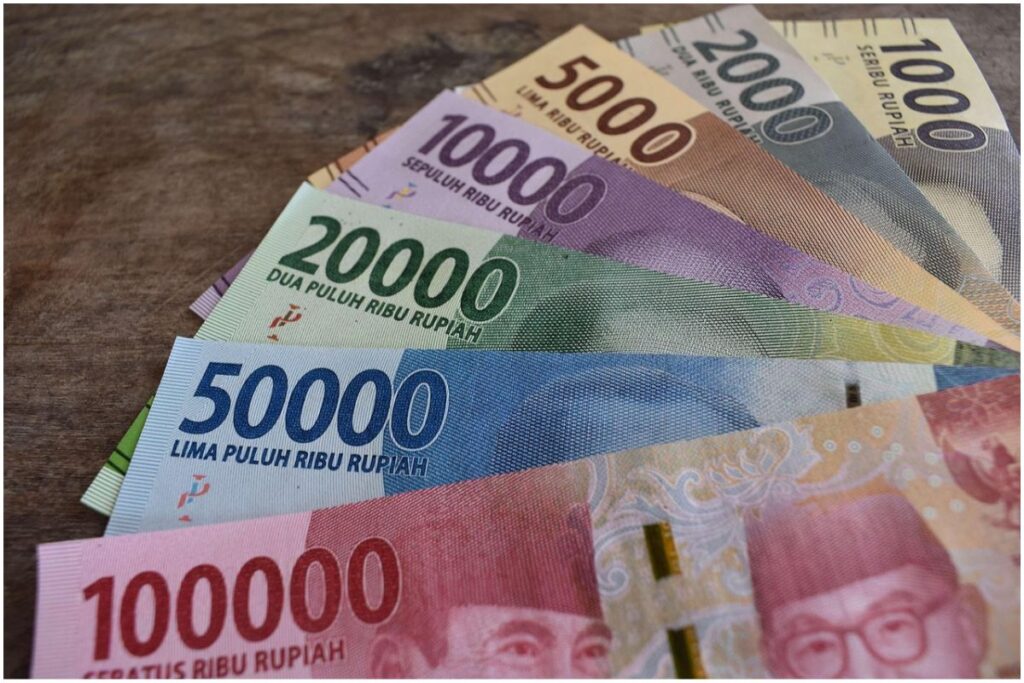
The currency in Bali is the Indonesian Rupiah (IDR or Rp), since Bali is part of Indonesia. All payments are made in rupiah. Banknotes range from Rp1,000 to Rp100,000. ATMs are easy to find in tourist areas, and most hotels, big restaurants, and modern shops accept credit cards. But for small warungs or traditional markets, cash is preferred.
Foreign currency isn’t usually accepted, and if it is, the exchange rate may not be fair. It’s safer and more practical to use rupiah. Money changers are everywhere, but stick to official places or banks to avoid scams. 1$ US in Bali usually equals around 16,274 Rupiah, so it’s worth converting your money to avoid overpaying.
Currency Denominations and Money-Saving Tips
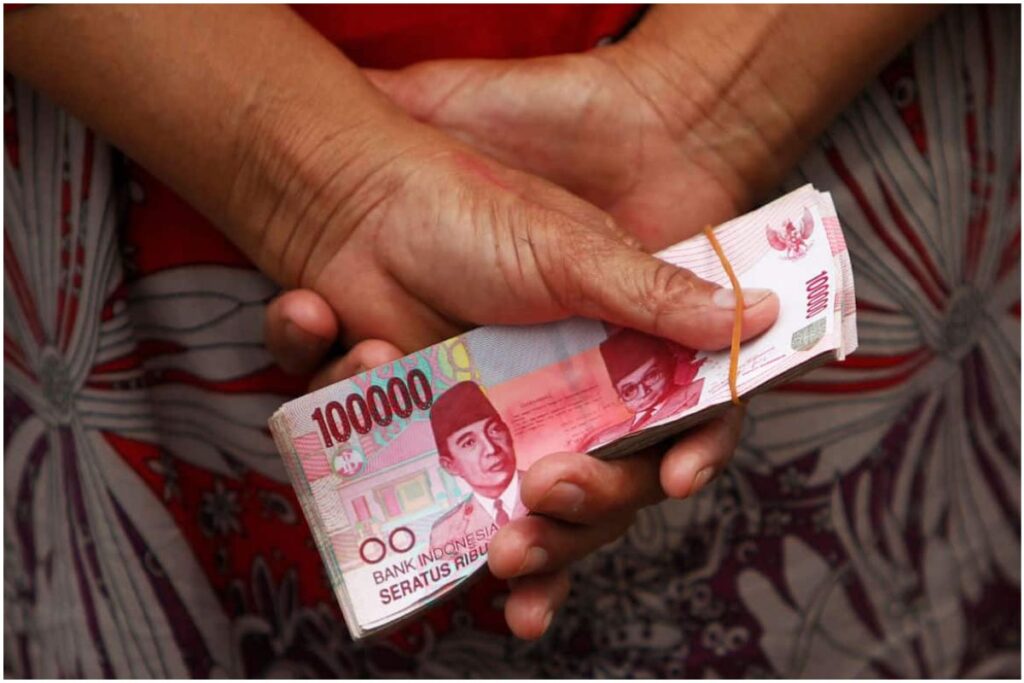
The currency used in Bali is the Indonesian Rupiah (IDR or Rp). The coins you’ll find are Rp100, Rp200, Rp500, and Rp1,000. For paper money, the most common banknotes are Rp1,000 up to Rp100,000, which is the largest one. Rp100,000 is about USD 6 to 7, depending on the exchange rate.
If you’re coming from Australia, $100 AUD in Bali usually equals around Rp10,624, making it easy to enjoy food, shopping, and transport at a great value.
Cash in Bali is Essential
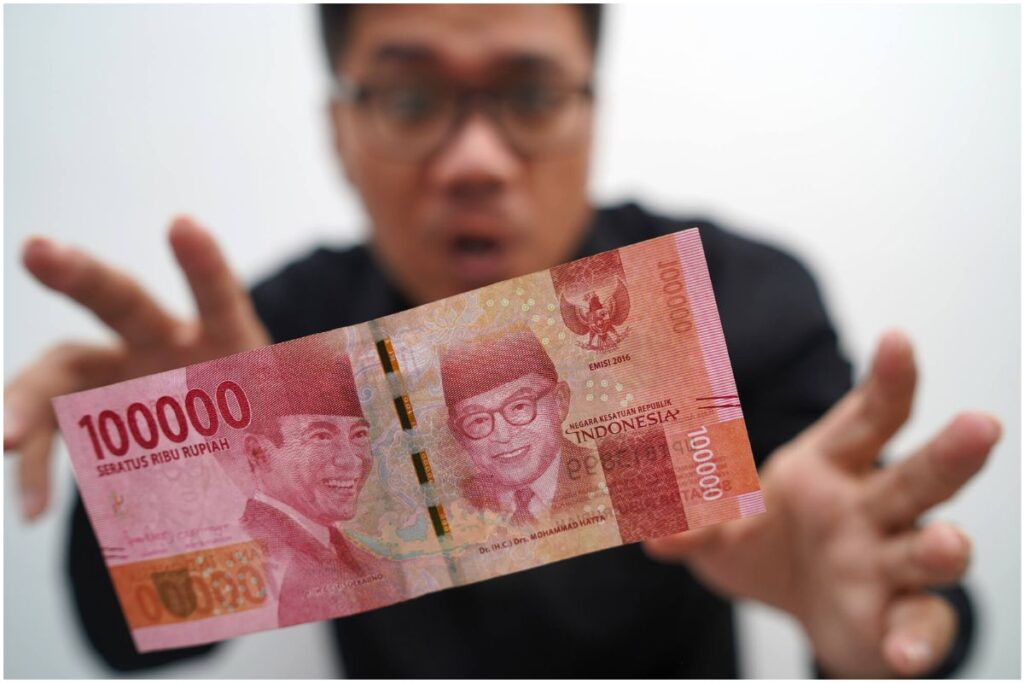
Even though Bali is getting more modern with digital payments and cards, cash is still important for daily use. Many local places don’t take cards or QRIS, especially small warungs, souvenir stalls, parking spots, and temple ticket counters. You’ll need cash when shopping at Sunday markets or exploring more traditional areas.
In some parts like Ubud, Sidemen, or remote beaches, weak phone signals can make card machines or QR codes unreliable. Even where cards are accepted, there’s often a minimum spend of Rp50,000 to Rp100,000. Some places also add a 2–3% fee for international cards. So it’s smart to carry some Bali currency with you at all times.
Bali Money Changers
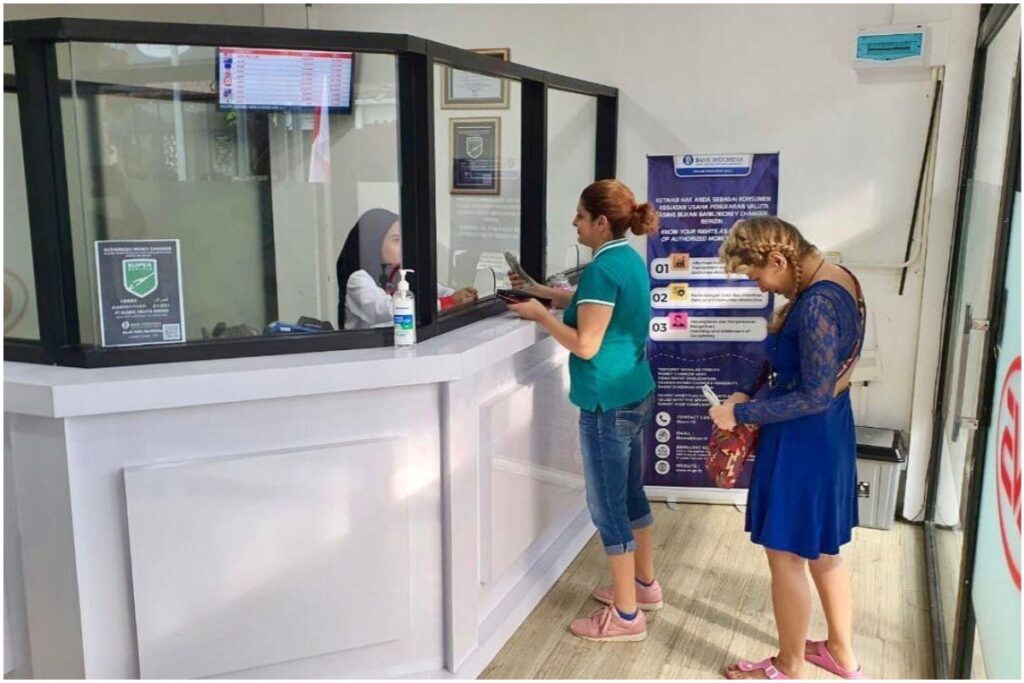
There are plenty of money changers in Bali, but not all of them are safe. To avoid scams, always go to official spots that are clear, secure, and trustworthy when exchanging currency in Bali.
1. BMC (Bali Money Changer)
You’ll find BMC in Seminyak, Legian, and nearby areas. They have a proper office setup with cashiers behind glass, not open counters. Just watch out for fake changers using the “BMC” name.
2. Central Kuta Money Exchange
Located in Kuta, Seminyak, Sanur, Nusa Dua, Legian, and Ubud, Central Kuta is one of the most reliable options. It’s registered with Bank Indonesia and offers good rates, no extra fees, and fast service.
3. Dirgahayu Valuta Prima
This one’s also officially registered and easy to find in big malls or popular tourist spots. Their service is secure, with printed receipts for every transaction.
If you’re wondering what currency they use in Bali, it’s the Indonesian Rupiah (IDR), and these places make sure you get it safely and fairly.
Tips for Using Cash and Keeping Small Bills Handy in Bali
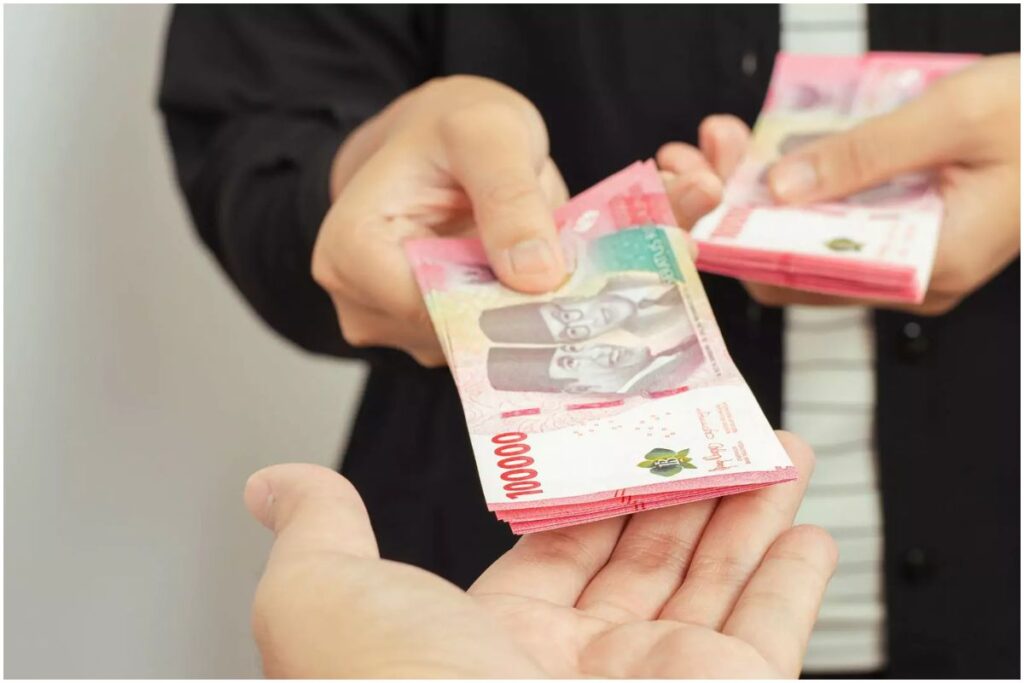
Even though places like Ubud, Seminyak, and Canggu are becoming more digital, cash is still key in many parts of Bali. Local food stalls like halal food restaurants, markets, parking areas, street vendors, and small spas or guesthouses usually only take cash. Here are some simple tips to manage money in Bali:
1. Keep Small Bills Handy
Rp2,000 to Rp20,000 is useful for snacks, water, parking, and tipping.
2. Ask for Small Bills When Exchanging
At official money changers, request a mix of denominations so you’re ready for smaller purchases.
3. Use a Separate Wallet
Keep your small change in a different pocket or pouch so it’s easy to grab and safe to carry.
4. Use Mobile Payment Apps
Apps like GoPay and OVO work well in cafes, restaurants, and stores. Top ups are easy via ATM or minimarket, and you might get cashback too.
5. Bring Extra Cash for Remote Trips
You’ll find ATMs in cities, but not always in rural or coastal areas. Carry extra cash just in case.
6. Always Check Your Change
At markets or when using larger bills, count your change to avoid mistakes.
7. Tip When You Can
Tips of Rp5,000 to Rp20,000 are appreciated by drivers, staff, and spa therapists.
The currency used in Bali is the Indonesian Rupiah. The best currency to take to Bali is USD, AUD, or EUR; they’re easy to exchange island wide and usually get good rates. However, keep in mind that the exchange rate to the rupiah may fluctuate over time, depending on Indonesia’s economic conditions.
Essential Money Tips for Travelers in Bali
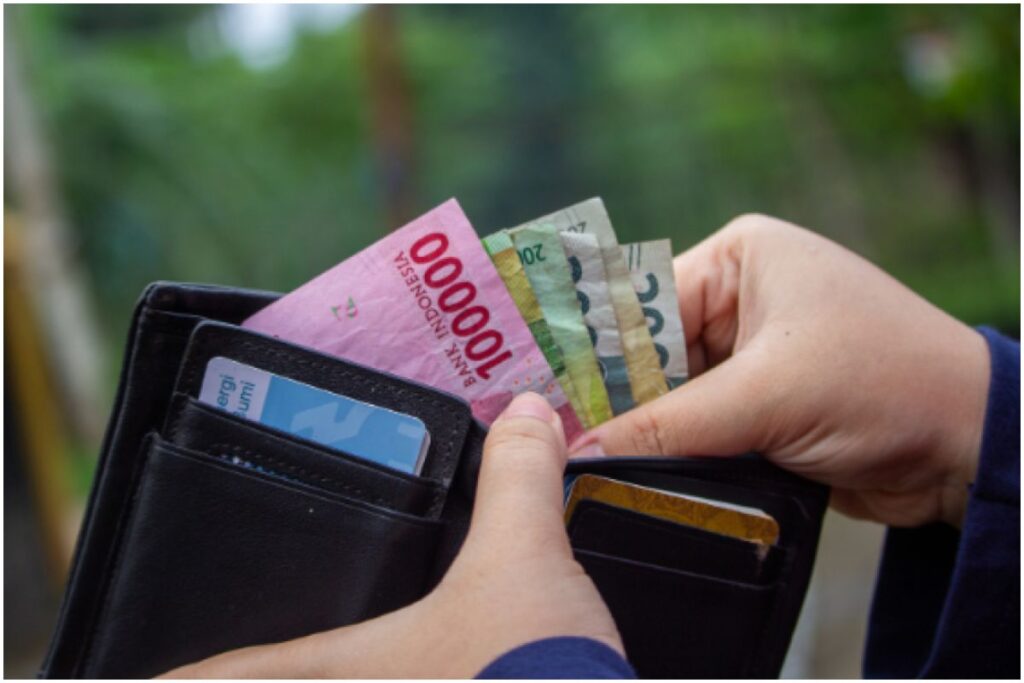
Managing your money well while traveling can help you enjoy your time in Bali without stress. Here are some easy and practical tips:
1. Always carry enough cash
While Bali is becoming more digital, especially in areas like Seminyak and Ubud, many small shops, local warungs, markets, and tourist spots still prefer cash. It’s smart to bring small notes like Rp10,000 to Rp50,000. For reference, 1 NZD in Bali dollars is usually around Rp10,000.
2. Stick to trusted bank ATMs
Use machines from big banks like BCA, Mandiri, or BNI. Avoid isolated ATMs and always check for anything unusual on the card slot.
3. Exchange money at official spots
Use licensed and trusted places like Central Kuta, Dirgahayu, or BMC. Avoid shady money changers offering rates that sound too good. What currency does Bali use? The Indonesian Rupiah (IDR), and official money changers will give you fair rates.
4. Use e-wallets when possible
Apps like GoPay and OVO are widely accepted at restaurants, stores, and for rides. They’re fast and sometimes offer cashback too.
5. Split your cash for safety
Keep some money in your wallet, some in your bag, and the rest in your hotel safe. That way, you won’t lose everything if something goes wrong.
How to Avoid Scammers
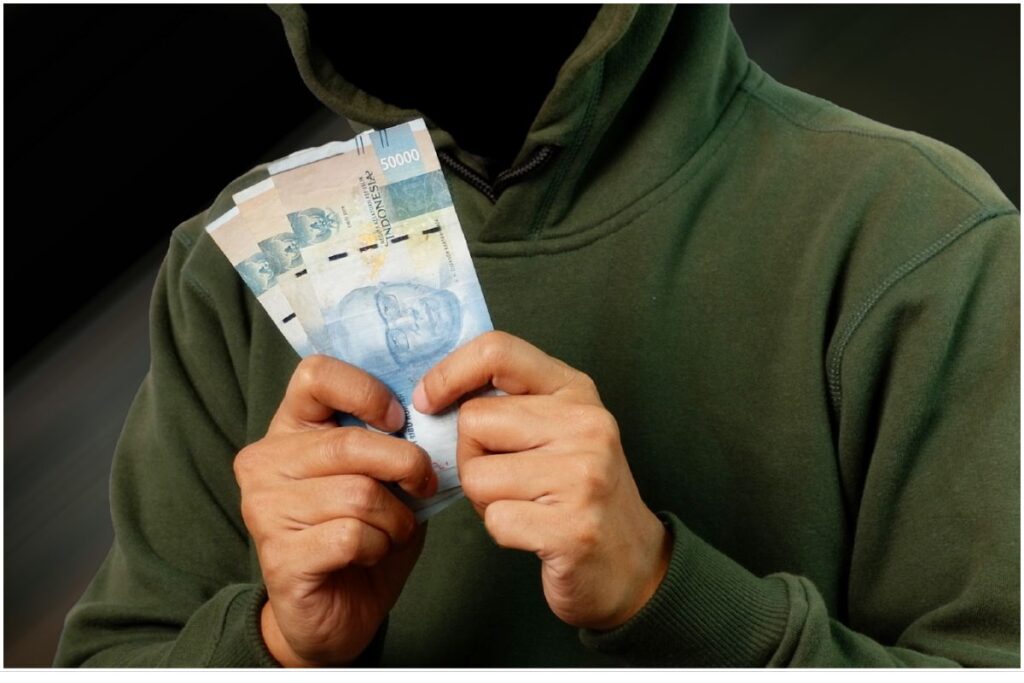
1. Stay away from shady money changers
Skip the tiny booths or random stalls that offer exchange rates that seem too high. They’re often scams. Stick with certified money changers like Central Kuta, BMC, or Dirgantara. These places show clear rates and don’t sneak in extra fees. It’s the safest way to deal with money in Bali.
2. Watch out for ATM skimming
Use ATMs located inside banks or places with security cameras. Avoid those random ATMs on the street or in small shops. Always check the card slot and keypad to make sure nothing looks off.
3. Book stays through trusted sites
Go with well known platforms like Booking.com, Agoda, or Airbnb. Be careful with random Instagram or WhatsApp accounts offering deals that feel too cheap. If you book through social media, make sure the account looks legit and uses secure payment options.
4. Don’t scan random QR codes
Some QR codes in public places can lead to fake sites or steal your info. Only scan codes from reliable sources like official menus or apps like GoPay and OVO.
In short, what currency does Bali use? It’s the Indonesian Rupiah (IDR), and it’s essential to carry it for daily expenses, especially when exploring traditional markets, local warungs, or remote beaches. Whether you’re paying for a quick meal, shopping at a Sunday market, or tipping a driver, having the right currency makes everything easier. For a smooth and memorable stay, choose Ini Vie Hospitality, the best in Bali when it comes to comfort, service, and seamless hospitality management.
